In December 2024, Deep Griha Academy, located in the heart of Deulgaon Gada, Morgaon Road, Daund Taluka, Pune, held a unique event. Farmers from neighbouring areas visited the school to get their soil tested. The scientists performing the test were students of classes seven and eight.
“Soil health is the backbone of sustainable agriculture, and assisting our students with the knowledge to improve it is the first step towards improving our farming practices,” says Ashlesha Onawale, director of Deep Griha Society that runs the Academy.
In 2007, the school decided to introduce the agriculture vertical into its curriculum. The idea was to ensure that the next generation understands the vital role agriculture plays not just in the economy, but also in sustaining their local communities.
“At our academy, students are introduced to agriculture from a young age. The school teaches children the complete cycle of farming, from sowing seeds to harvesting, while emphasising organic farming methods,” says Swapna Sonkambale, the organic agriculture teacher at the institute.
Soil health for a better tomorrow
“Soil is the foundation of all agriculture, and teaching students about its importance has become central to the school’s agricultural education,” Swapna shares. She, along with Angela Aram, the programme and corporate engagement coordinator, and Ashlesha, the director of the academy, have been central in initiating the soil testing project for classes seven and eight.
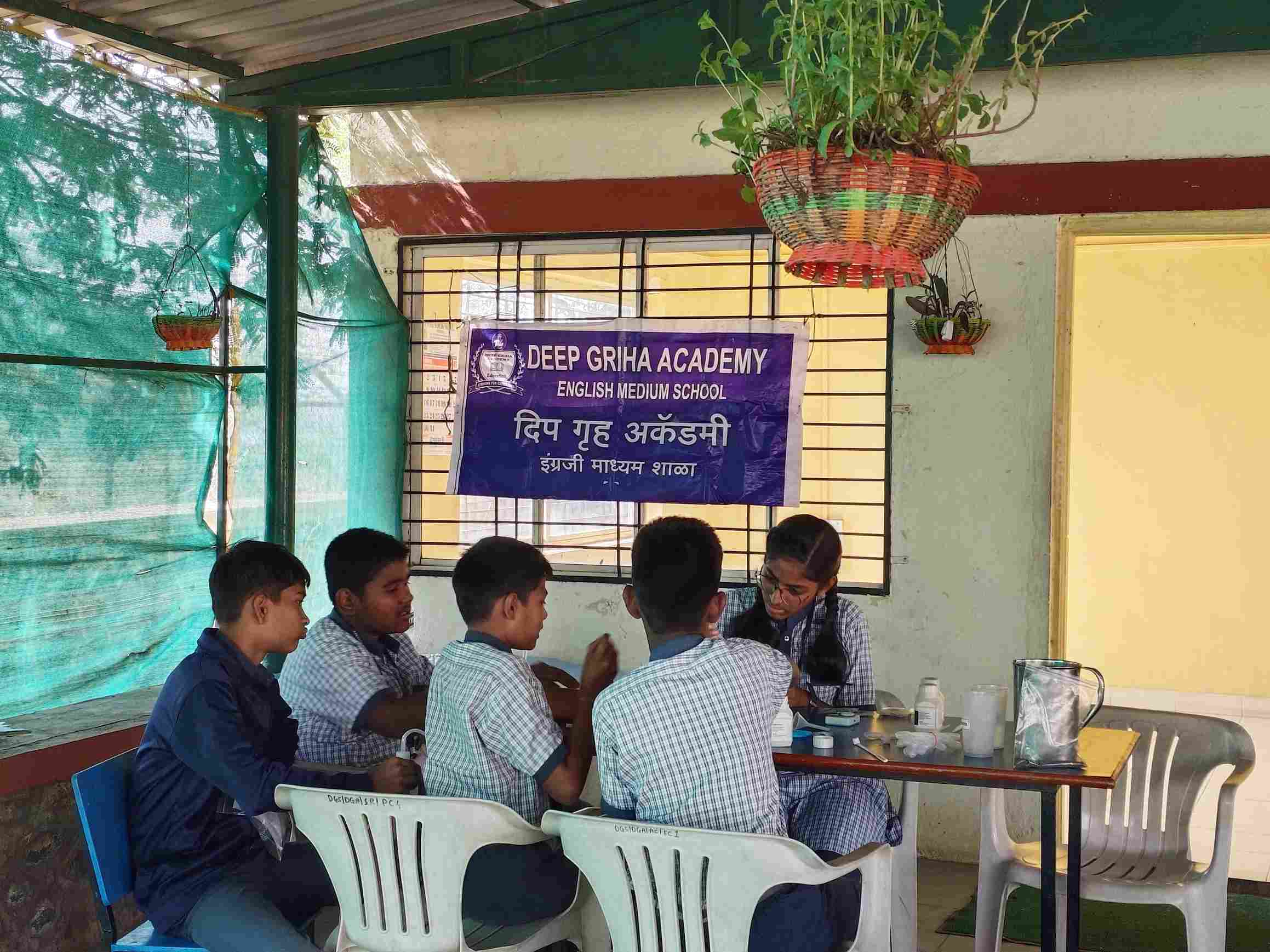
The initiative began with an eye on the needs of the local farming community.
“In many rural areas, farmers often struggle to access accurate soil health data. Without the right information, they risk wasting money on fertilisers that their soil may not need, or missing out on essential nutrients that could improve their crop yield,” explains Swapna.
To find a way to address this, the Academy got into discussions with Proximal Soilsens — a company that produces soil testing kits and helps farmers understand their crops better. Soon they acquired soil testing kits, allowing students to learn how to test local soil and provide farmers with authentic data to make informed decisions.
The kits were sourced with the support of Tushar Hande from the Business Department and Dr Rajul Patkar, the company’s co-founder.
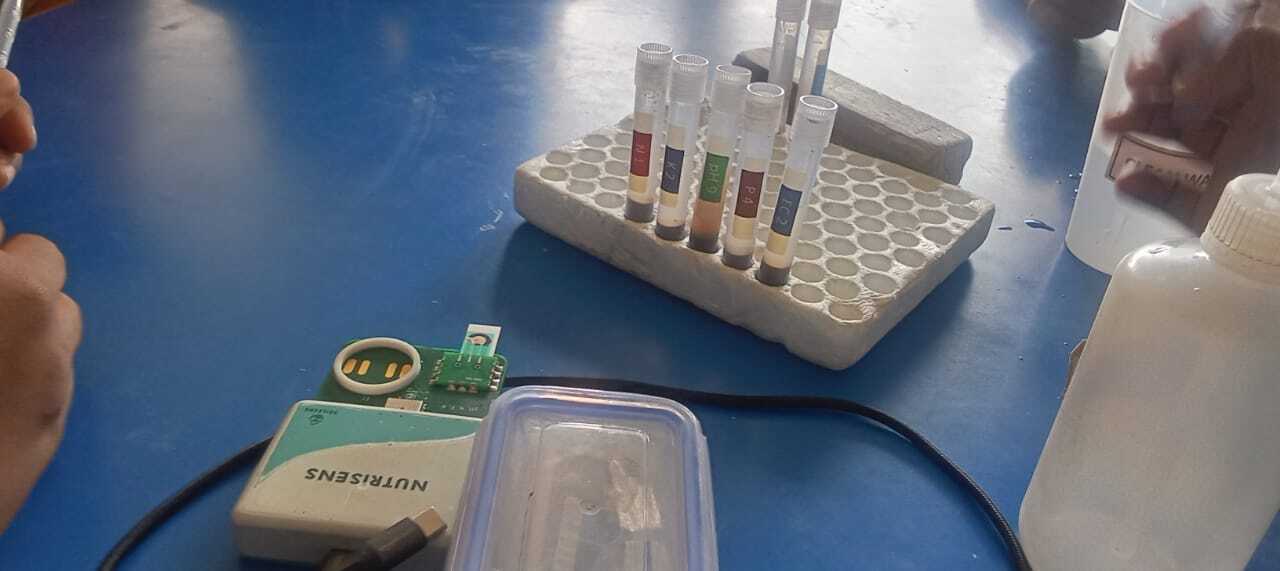
“We saw the soil testing kit as a valuable opportunity for our students to enrich their understanding of soil health. After testing our soil, we gave students the chance to apply their knowledge in a real-world context,” Angela says.
“One of the main goals of this initiative was to teach our students the importance of soil health, and also assist them to help the farmers in our community by providing quick and actionable soil reports,” Swapna adds.
The project was launched as a pilot with 15 students from class 7, who were selected to learn how to use the soil testing kits.
“Over the course of a year, the students were taught the fundamentals of soil health, including the key nutrients in the soil, like nitrogen, phosphorus, potassium, organic carbon, pH, and electrical conductivity,” Swapna informs. They also learnt how these nutrients interact with one another, and how their levels affect crop production.
Practical learning
Once the students were familiar with the theory behind soil health, the real learning began. “We taught the children how to take soil samples and use the kits to test for these essential nutrients,” she says. “First, they learnt how much soil and liquid were required for each test, and then they used the Soilsens kit to measure levels of nitrogen, phosphorus, and other elements.”
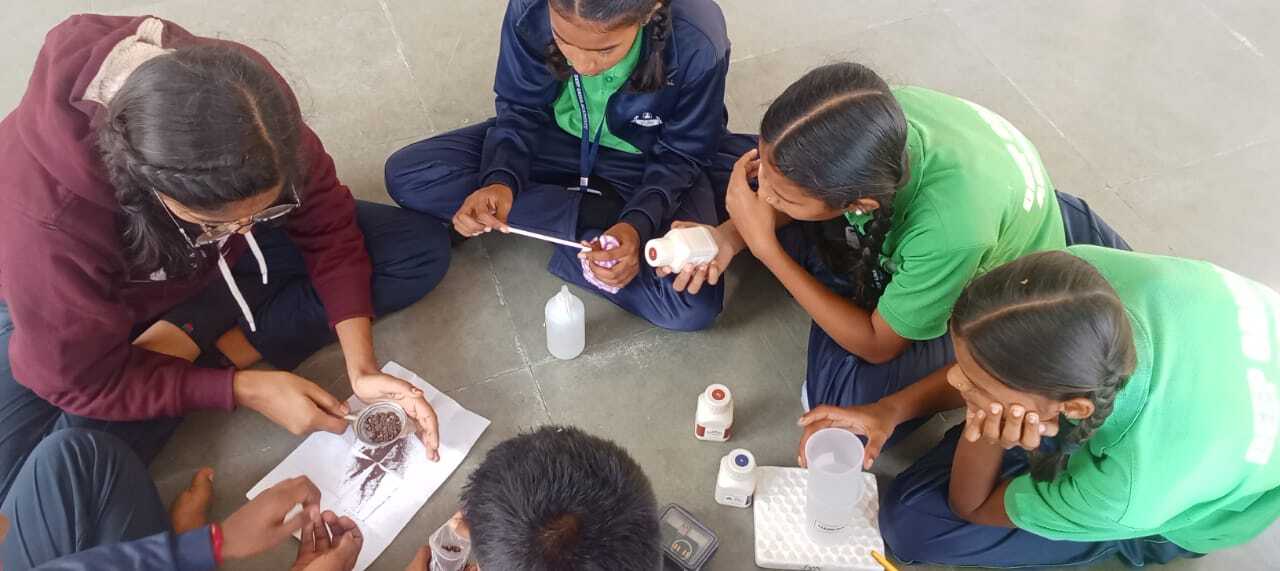
The kit works through a straightforward process that enables students to gain both theoretical and hands-on experience.
“First, students mix soil with specific chemicals in a vial to extract the necessary nutrients. For instance, if testing nitrogen, they would take 3 ml of the nitrogen reagent and mix it with 1 gram of soil, shaking the vial and allowing it to settle for about 15 minutes. Once the soil and chemicals are well-mixed, the next step is to test the sample. Using the Nutrisens device, which connects to a smartphone, students place a few drops of the solution onto the device’s sensor. The data is then instantly retrieved and displayed on the connected phone,” says the teacher, who is heading the soil testing initiative.
“Seeing the children carry out the process with such confidence is truly rewarding,” she adds. “The kids are not only learning about soil health but also developing crucial life skills such as teamwork, problem-solving, and confidence.”
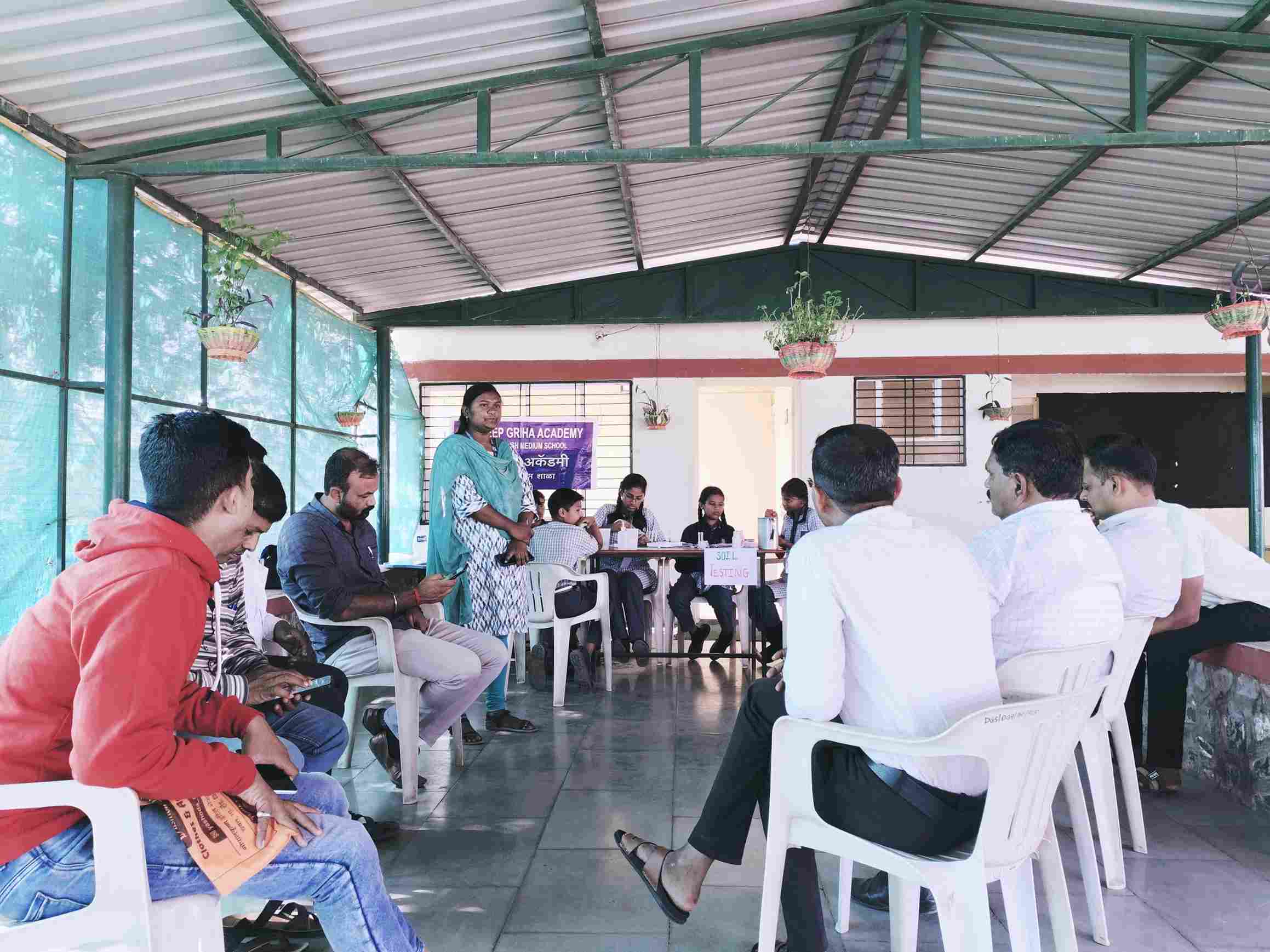
After testing all the necessary elements, such as nitrogen, phosphorus, and potassium, the results are saved and a detailed report is generated in real-time via the Soilsens agriwise app.
Typically, the entire process, from mixing to generating the report, takes around 30-35 minutes, which is a significant improvement over traditional methods that can take months.
Aiding local farmers
On 17 December 2024, Deep Griha Academy conducted a large-scale pilot project with 15 farmers from surrounding villages. This event brought together the students, who are now in class 8, and local farmers for the first time.
“The farmers arrived from seven different villages, including Yavat, Supa, Kedgaon, Kasurdi, Deulgaon Gada, and Boripardhi. Some farmers even brought multiple soil samples from different plots of land,” Swapna says. “When they arrived, the students took charge, performing the soil tests and providing farmers with actionable reports,” she adds.
The immediate feedback was overwhelmingly positive. “Farmers were excited to see our students take charge of the testing process,” says the proud teacher. “They appreciated not only the speed of the reports but also the valuable insights into their soil health that helped them reduce unnecessary fertiliser use and save money.”
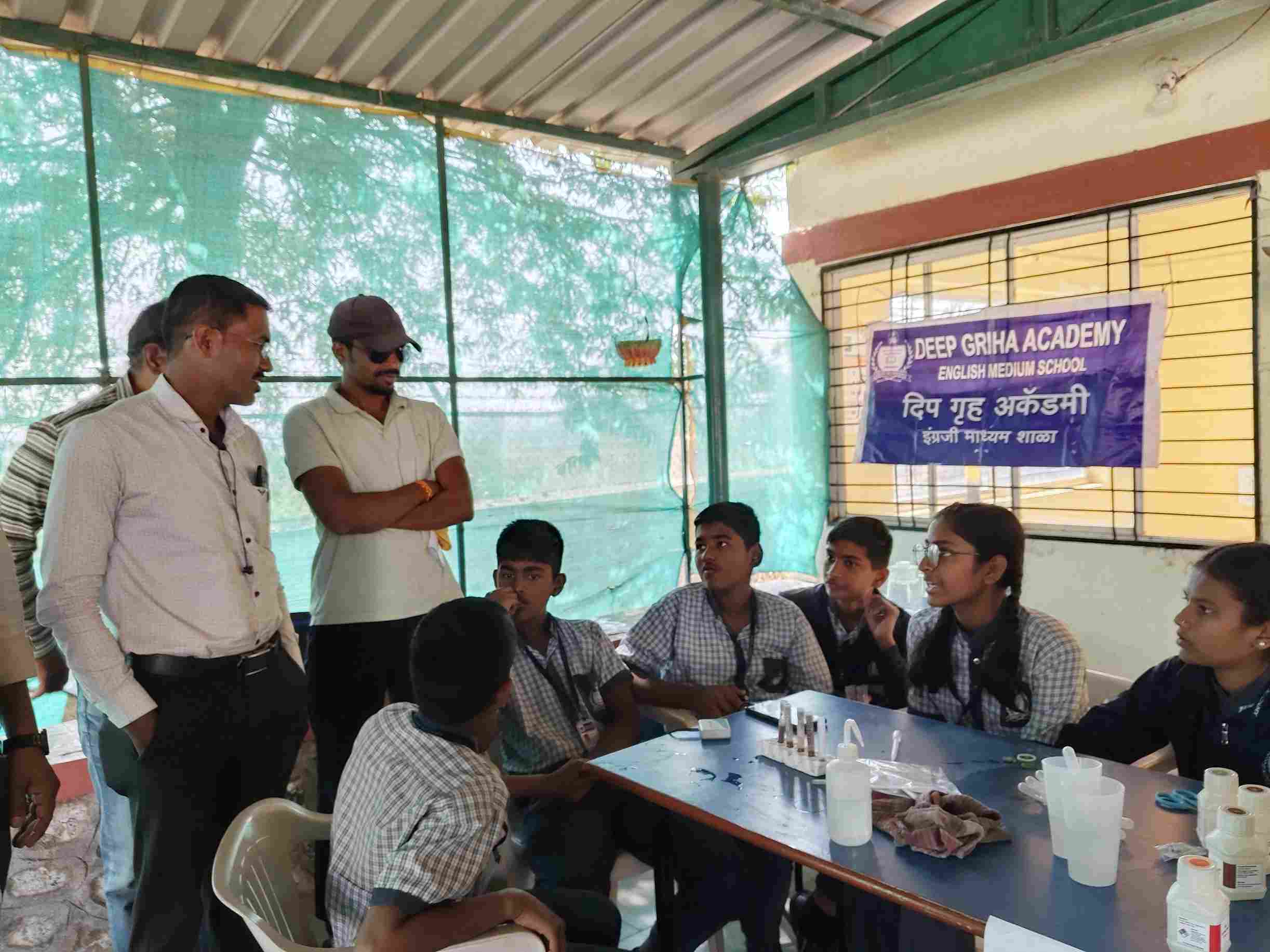
For example, if a farmer’s soil had sufficient levels of nitrogen or potassium, the students advised them not to add more fertiliser. Similarly, if a farmer’s soil showed a deficiency in organic carbon, they were encouraged to use organic manure or implement practices like mixed cropping to improve the soil’s health.
“It was a fun experience, from learning about soil health to executing the tests and interacting with farmers. Teaching them about the importance of organic alternatives felt incredibly rewarding,” Ashwini Shinge, a student who participated in the soil testing event.
Santosh Sharma, another 14-year-old student, admits that he initially didn’t understand the importance of soil testing.
“I used to think that soil testing was something farmers should do themselves, but once I started learning about soil health, I became excited,” Santosh Sharma, another student says.
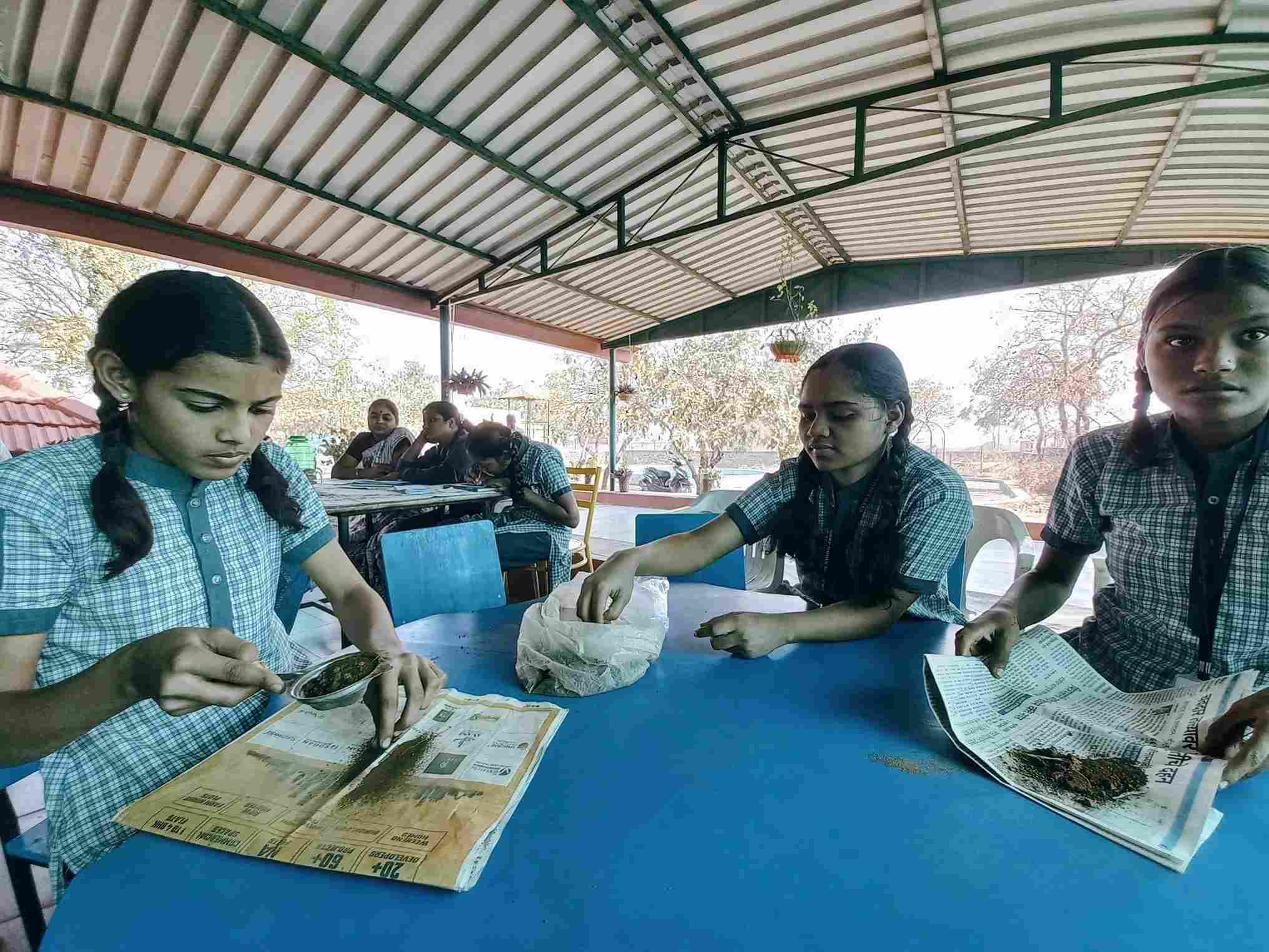
“I learnt about the different nutrients required for healthy soil, and I wanted to help farmers by giving them accurate reports. The initiative has made me realise how much I can contribute to helping farmers save money and improve their crops,” he adds.
Divya Sharma, a 13-year-old student is happy that the new skill allows her to help farmers in her locality. “In our locality, farmers often have to travel long distances to get their soil tested. But now, they can do it right here at school, saving both time and money,” she says, adding, “I have learnt to advise farmers on improving soil health, such as recommending crops like peas and beans if nitrogen levels are low, allowing them to grow crops without the need for additional fertilisers.”
“This has been an eye-opener for many farmers in our area,” Swapna says. “They now see the value in soil testing and are already starting to use organic manure more frequently.”
Looking ahead, the school plans to expand the initiative. “We want to include more students in this project, particularly from class 7 and 8,” the teacher says.
The academy aims to conduct between 35 to 40 soil tests in the coming months, extending the reach of the project and continuing to educate both students and farmers.
“We believe that students from higher classes should be actively involved in the initiative, as their deeper understanding of the technical aspects allows them to engage meaningfully with the process and help local farmers make informed decisions,” concludes Ashlesha.
Edited by Arunava Banerjee; All pictures courtesy Angela Aram
No comments:
Post a Comment